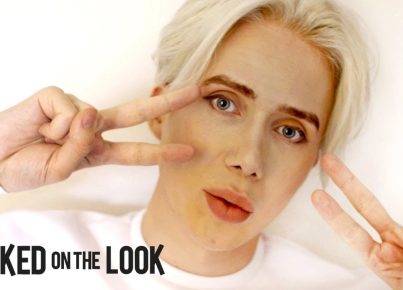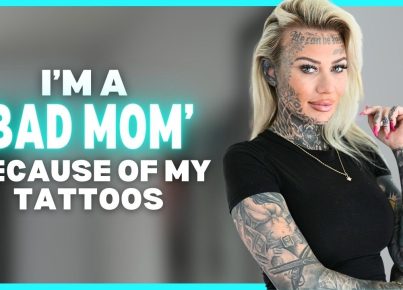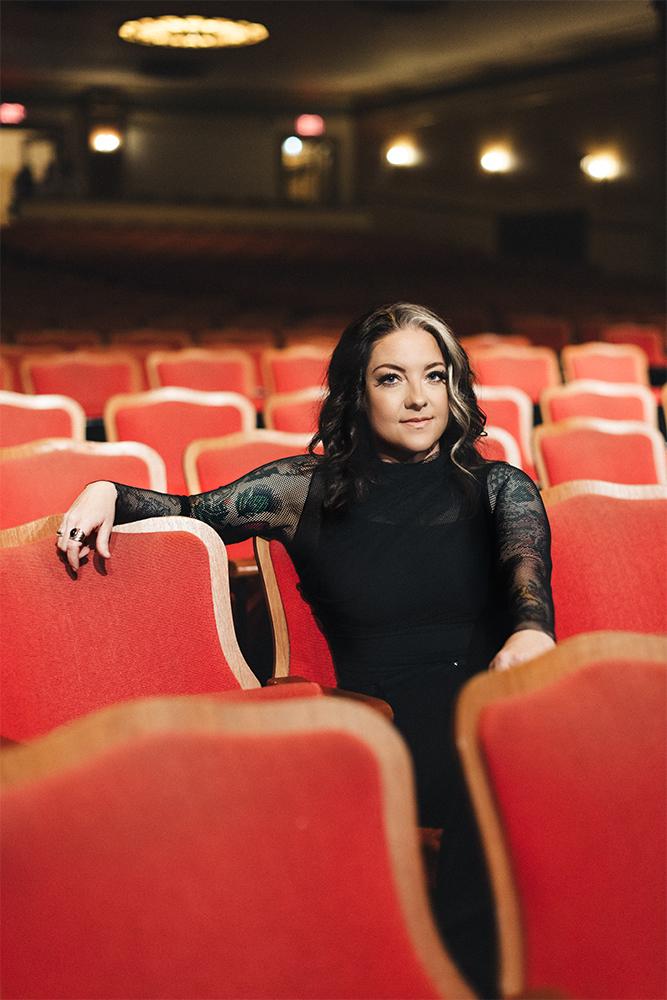
We’re all looking for somewhere to belong. It’s human nature: we need connection, community, and belonging to maintain our well-being. In a world where authenticity can sometimes feel elusive, Ashley McBryde is the lighthouse we’re all searching for. Through her vocals, raw storytelling, and direct actions, she champions the importance of belonging and community, fostering connections that transcend beyond the music industry.
McBryde is one of the most acclaimed country artists to emerge within the past few years. She received six Grammy Awards nominations with one win, one Country Music Awards (CMA) trophy, three Academy of Country Music (ACM) awards, and one nomination for a Daytime Emmy. With success like that, it’s easy to enter a self-obsessed bubble. But McBryde is still badass and a true girl’s girl. She sets the record straight: “I know it can seem like women in country music are catty. We are not. We want you here. We party together. Come on over.”
Growing up as the youngest of six kids, music was always part of McBryde’s life. “I’ve been singing since I was old enough to know that they were throwing shoes at me trying to get me to shut up,” she jokes. With influences like Dolly Parton, Patty Loveless, and Trisha Yearwood, McBryde was surrounded by powerhouse female artists who shaped her musical journey.
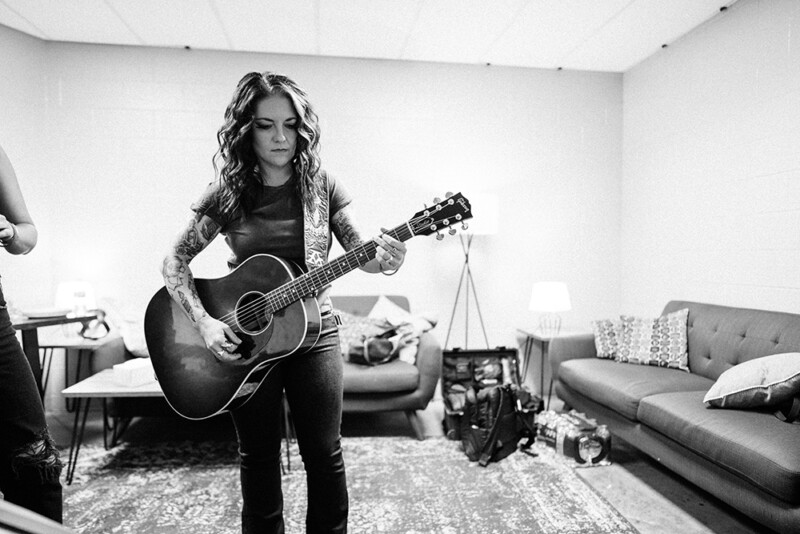
McBryde found belonging in music, in storytelling, and with audiences. “I remember when I was little, I was really shy and I didn’t want to talk to people, but I could sing to them,” she reflects. Music has served as a gateway to human connection for McBryde. Before embarking on her world tour, McBryde spent some of 2023 touring with Jelly Roll, CMA’s New Artist of the Year. “When we got on tour, he said to me, ‘You’ll never feel more at home anywhere than you will on my tour.’ This rang true for his audience, especially being someone who’s covered in tattoos in country music, where being tall and blond and pristine is standard. And I’m short and brunette and covered in tattoos.”
McBryde wants to return that sense of belonging to her audience — to every person. “I want people in active addiction in my crowd. I want people in recovery in my crowd. These are the people that will stick to the devil they know. These are the guys and girls going nowhere. They’ve been told this. They’ve been told they’re pieces of shit by their teachers, their coworkers, their spouses in some cases, and their parents. That’s who I want to sing to.”
When talking about performing her song “6th of October,” McBryde says, “When we sing, ‘Reckless hearts, the tattered and bruised ones, the slightly confused ones, the ones holding stools down in bars, will show up and find us and gently remind us to not be afraid of our scars and who we are.’ That is my favorite thing to watch. When the audience closes their eyes and turn their head to the side and sing ‘slightly confused ones,’ they are in that moment admitting that’s them or recognizing that’s somebody close to them. And that’s a gift that we can’t just give on our own. That’s only through the power of song and live performance that we can offer them just a couple milliseconds of peace.”
McBryde doesn’t just sing to her audience — she commits to deeply connecting with them, even if they cannot hear her voice. She recently began signing lyrics and phrases on stage. After surgery on her vocal cords, she couldn’t speak for weeks, so McBryde learned enough American Sign Language for necessities, like water and food. “I’m still learning, and sometimes slowly,” she says. “But it just became more and more apparent to me that one: I needed to learn more. And then I remembered we’ve got interpreters. And I thought it would be even cooler if I could thank the interpreters myself. And even better, can I thank my non-hearing and hard-of-hearing crowd? Because they’re there, or there wouldn’t be an interpreter. I want to thank them myself and say things like, ‘We see you, we’re happy you’re here, it’s nice to meet you, welcome to my show.’”
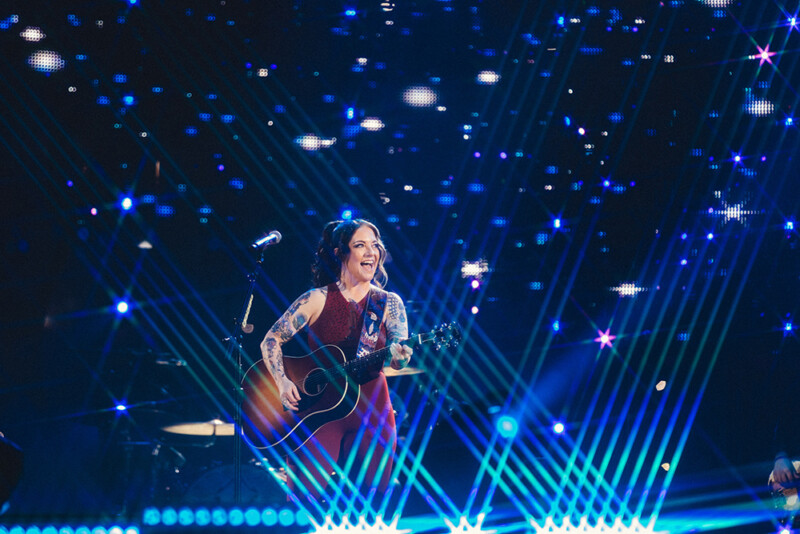
She was right — they were there. “The first reaction that really moved me was a lady at a show who said, ‘My sister is 62 years old and has been deaf her entire life and has been invisible her entire life. And you make me feel like she can be seen right now.’” It’s clear McBryde is committed to creating a community of inclusivity and belonging, and this is just one example.
On the inside of her left elbow is a tattoo of a devil staring into a rearview mirror, inspired by her latest album “The Devil I Know.” The album is filled with tender emotions, tough revelations, and the message of staying true to yourself, even when it’s not so pretty. “That’s the devil I know for sure,” she says. “And this really reminds me of my song ‘Blackout Betty,’ and one of the lines that is ‘I’m a real piece of shit sometimes.’ That’s not necessarily gorgeous, but it is true. And it doesn’t have to be pretty to be true. So, I know that bitch is still in the back seat, and she is ready to take over at any time.”
That fiendish passenger may still be in the back seat, but McBryde wouldn’t change a thing. “If I could go back and make it easier on younger me, her skin wouldn’t be as thick, and she wouldn’t be as strong as I get to be now.” It’s that mix of tough exterior, authenticity, and deep connection with audiences that keeps fans returning to the main stage.


